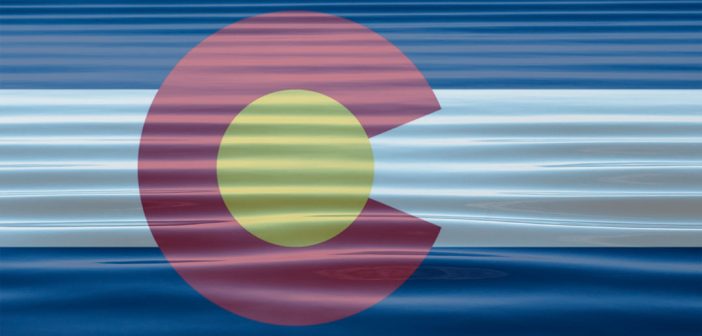 From BHA:
From BHA:
BHA continues fight for public waters access in the Centennial State
DENVER, Colo. – As the Colorado Supreme Court takes up consideration of Hill v. Warsewa, a lawsuit that has the potential to drastically change public access to the state’s waters, Backcountry Hunters & Anglers is continuing to fight for the interests of public lands hunters, anglers and others who rely on our shared lands and waters in the Centennial State.
The proceedings unfolding now in the state supreme court are the latest step in plaintiff Roger Hill’s battle to rightfully access his favorite fishing hole in a case that by extension could provide clarity to the public’s right to access the state’s navigable waterways.
BHA and two of its partners, American Whitewater and the Colorado River Outfitters Association, have filed an amicus brief in the case. The brief argues that without Hill’s case proceeding, Colorado will fail to do what other Western states have already done: actually engage with the question of navigability and open and sustain access opportunities to the public.
Don Holmstrom, a Colorado BHA member, has been coordinating the chapter’s response to this important public access case and is attending the court proceedings.
“BHA has taken action to support Hill’s legal fight from early in the litigation,” Holmstrom said. “A large part of Colorado’s outdoor economy depends on recreation related to public waters. Expanding access creates significant economic opportunities. Improved access to public waters also is one of the best outdoor pathways for communities where recreational opportunities historically have been challenging.”
Hill, a resident of Salida, Colorado, has fished the Arkansas River in southern Colorado for decades.
“Respondent Roger Hill, an 81-year-old fly fisherman, has a real, concrete, and particularized dispute with Defendants Warsewa and Joseph (the ‘Individual Defendants’),” the complaint reads. “Hill would like to return to his favorite fishing hole on the Arkansas River (the ‘River’) without facing the risk of violence, civil suit, or arrest. But the Individual Defendants, who undisputedly own the land adjacent to the River, have assaulted Hill with baseball-sized rocks and threatened him with prosecution for trespass. The Individual Defendants even shot at Hill’s friend who was fishing while wading on the disputed riverbed. As a result, Hill cannot safely return to the River to fish without first having his rights, and the Individual Defendants’ rights, clarified.”
To date, the state of Colorado has failed to affirm the public’s right to access to the state’s navigable waterways. Instead, the state has sided with private landowners who have taken extreme steps to block access from rivers and streams, including “death trap” metal obstacles, barbed wire, and other aggressive measures that place recreators in dangerous situations. This “status quo” fails to recognize the importance of navigability and access to the tens of thousands of individuals each year who access Colorado’s rivers to fish, raft or simply enjoy the natural beauty.
“American Whitewater advocates for the public’s right and privilege of floating on rivers that flow through public and private lands across the country,” said Hattie Johnson, Southern Rockies stewardship director for American Whitewater. “Mr. Hill’s case in front of the state Supreme Court provides an important opportunity to public river users to have a say in clarifying their rights to use the amazing rivers of our state.”
As this case continues, Backcountry Hunters & Anglers is committed to fighting for public access and the rights of hunters, anglers, floaters and recreators across the nation. For more information on BHA’s position on Hill v. Warsewa, read the full brief.
Backcountry Hunters & Anglers is the voice
for our wild public lands, waters and wildlife.
Learn more about BHA:
Connect with us on Facebook.
Follow us on Twitter.
Find us on Instagram.
Watch us on YouTube.





1 Comment
Is anyone thinking about or considering that Colorado’s rivers would be considered streams and creeks in other states like Montana? Does BHA really care about navigability and conservation or are they only concerned about winning another access battle like New Mexico? Speaking of which, do people know how terribly the access changes in New Mexico went after the laws changed? Genuinely curious…